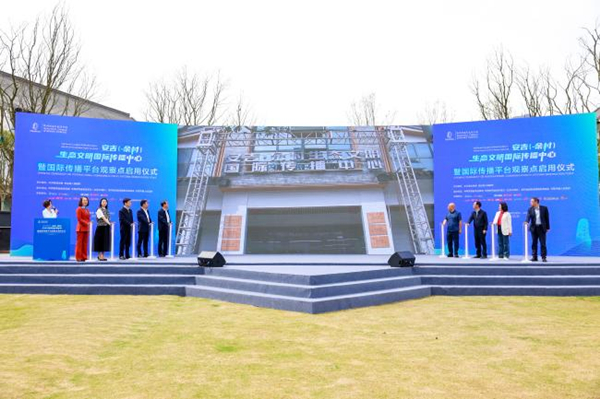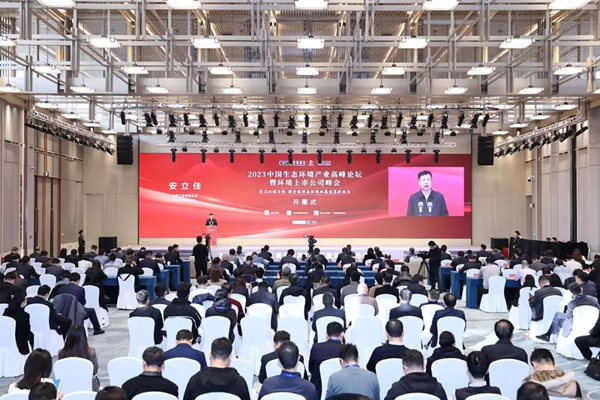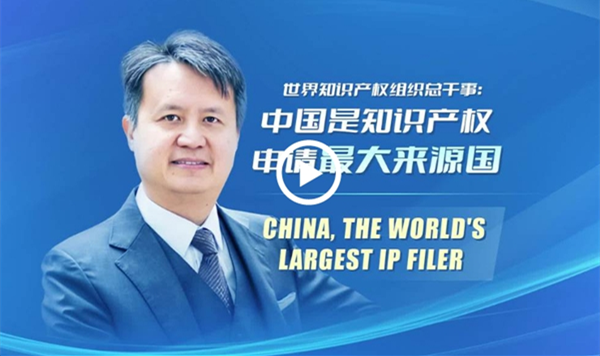China, a hopeful land for common prosperity
As China marches toward its second centennial goal, the focus of promoting people's well-being and happiness has shifted from pure high economic growth to boosting common prosperity, an essential requirement of socialism and a key feature of Chinese-style modernization, which is a target that could be achieved only in China where socialism with Chinese characteristics provides a key advantage, experts said.
The establishment of the target, which involves the long-term governance fundamentals of the Communist Party of China (CPC), responds to one of the biggest difficulties toward 2049, the centennial of the founding of the People's Republic of China in 1949.
Dividing the cake fairly instead of only seeking to make it bigger will be the key theme of China's economic and social development for some time, and it is an issue that all economies in the upper-middle-income level should tackle; otherwise, it will lead to serious social contradictions, they noted. In this sense, China's practice of common prosperity by pushing all-around reforms to benefit the people, different from the West's governance that serves only the elite and affluent, will set a standard for the world.
Cake for everyone
At the tenth meeting of the Central Committee for Financial and Economic Affairs held on Tuesday, Chinese President Xi Jinping stressed efforts to promote common prosperity in the pursuit of high-quality development and coordinate work to forestall major financial risks, calling for adhering to the people-centered development philosophy and promoting common prosperity while pursuing high-quality development.
Rather than being egalitarian or having only a few people prosper, common prosperity refers to affluence shared by everyone, both in material and cultural terms, and shall be advanced step by step.
The goal of common prosperity is an unprecedented mission that could be achieved only in China under the leadership of the CPC, while other Western countries, although ostensibly hyping increasing workers' social welfare, are doomed to fail, according to observers.
"The nature of Western countries' capitalist system is to pursue profits, and as a result, wealth is only concentrated in the hands of capitalists who accumulate assets by exploiting workers. Such a way of running social resources will lead to only widening the wealth gap," Wang Yiwei, director of the institute of international affairs at Renmin University of China in Beijing, told the Global Times on Wednesday.
And the very nature of socialism is to advance justice and fairness, of which common prosperity is a material premise and requirement, observers said.
"The CPC has merged the Marxism theory with traditional Chinese culture, and this is how the two centennial goals of xiaokang and common prosperity were proposed. The one-party ruling system has allowed China to write such goals into the Constitution and achieve it step by step," Wang said. In contrast, the West's party system does not guarantee the sustainability of policy implementation, making it hard to pursue a goal in the long term.
Cong Yi, dean of the School of Marxism at Tianjin University of Finance and Economics, told the Global Times on Wednesday that any country or region that crosses the middle income trap and enters the middle income ranking will face the issue of common prosperity for its people, and not dealing with it will lead to serious social contradictions that poison economic development.
With its per capita GDP above $10,000 and a middle-income group exceeding 400 million, China is already an upper-middle-income economy by World Bank standards, and is expected to enter the ranks of the high-income economies during the country's 14th Five-Year Plan (2021-25) period.
"In the US, their policy of taxation for the affluent could not fix the widening gap in a fundamental sense, which means American society is accelerating its divisions," Cong said. "In China, we can see an array of measures marked by flexible institutional adjustments to address the problems, which is our biggest advantage."
As the Tuesday meeting noted, the government will ramp up efforts to properly deal with the relationship between efficiency and fairness, make basic institutional arrangements on income distribution, expand the size of the middle-income group, increase the earnings for the low-income groups, adjust excessive incomes and prohibit illicit income to promote social fairness and justice. Hailing the importance of advancing a balanced, coordinated and inclusive development, the meeting stressed that China should improve the socialist market economy, strengthen balanced development among regions and promote coordinated development across industries.
"Common prosperity has been written in the genes of the CPC leadership as an internal requirement, and it is not a catchphrase that came to light suddenly. The central leadership has been attaching importance to the issue since the 18th CPC National Congress [held in 2012]," Cong said.
"It is the goal that we will achieve at whatever cost, and it needs long-term persistence regardless of both internal and external chaos, and only through that will a true global power with socialism of Chinese characteristics be born, a country that will stun the world," said Cong.





